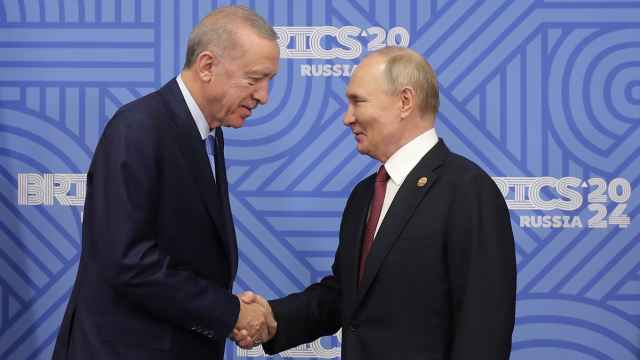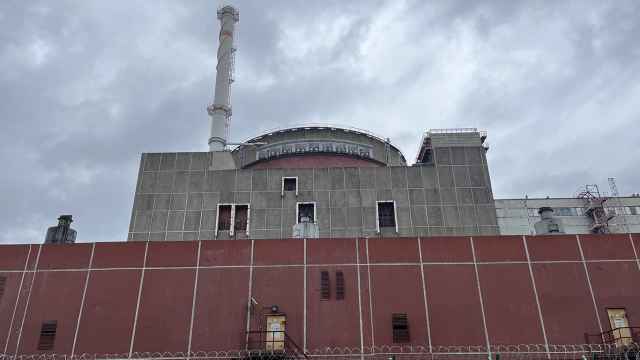Was the MH17 flight, downed in the Donetsk region in July, actually the MH370 flight that disappeared in the Indian ocean last March? Someone powerful, or so the thinking goes, must have stuffed the plane with dead bodies, stocked it with Dutch passports and exploded it over Ukraine to set up the separatists and put the blame on the Russian authorities.
No matter how bizarre this story might sound, it made inroads into mainstream Russian media this summer and has become a part of popular Russian culture. Anti-Western conspiracy theories has only intensified over the crisis in Ukraine.
The political and intellectual elites in the 2000s saw the past through the lens of conspiracy, especially the Soviet collapse in 1991.
Of course, by no means are conspiracy theories unique to Russia. As some scholars note, the U.S. could be called an "empire of conspiracy" due to the long-lasting tradition and an overwhelming corpus of conspiracy theories. Conspiracy theories, however, have been largely excluded from mainstream political discourse in the U.S., in part because of backlash to the outrageous anti-communist witch hunts of former U.S. Senator Joseph McCarthy.
Unfortunately, conspiracy theories are still a part of Russia's political discourse. The idea of "subversive agents' supported by the West was crucial for smearing dissident voices within the Soviet Union, while the conspiratorial perception of the U.S. was a central tenet of state ideology.
But for many reasons, the Soviet collapse did not trigger a deep discussion of Russia's totalitarian past. On the contrary, the political and intellectual elites in the 2000s saw the past through the lens of conspiracy, especially the Soviet collapse in 1991. Commonly used terms like "national traitors" demonstrate that the language of the totalitarian past even became inspiration for the present.
A careful scholarly analysis of the phenomenon suggests that conspiracy theories are efficient populist instruments to reallocate power between various political actors in society. Conspiracies, by dividing the world in a good "us" and an evil "them," transfer power and legitimacy to the "us" group and give it a defined identity. Society is thus mobilized by the fear of foreign or internal deception and subversion.
The need for social mobilization is crucial in understanding why anti-Western conspiracy theories have become so popular in today's Russia. In the decade since the Orange Revolution in Ukraine in 2004, the authorities have spent a great deal of time and money to create suspicion about "dissident voices."
Meanwhile, growing nostalgia for the Soviet Union and the absence of public consensus regarding events of the recent past (such as the Soviet collapse) provided fruitful ground for dissemination of conspiracy theories. Pro-Kremlin intellectuals and politicians defined the opposition to the Kremlin, which shared critical attitudes toward Soviet past, as "national traitors" who oppose the majority of genuinely Russian "patriots."
This process ran in parallel with a transfer of the so-called patriotic opposition (like the leader of neo-Eurasianism Alexander Dugin and writer Alexander Prokhanov) toward the center of political discourse. These public intellectuals, who were transformed from leaders of the anti-government camp into the Kremlin's closest allies, all represent the West as Russia's ultimate enemy, and Western leaning dissidents as being in Washington's pay.
Social mobilization based on anti-Western conspiracies peaked during the electoral cycles of 2007-08 and 2011-12, when the Kremlin strived to guarantee mass support Public intellectuals and think tanks worked together with the state-aligned media to aggressively promote fears of a color revolution in Russia, reportedly organized by the West and its domestic allies.
Currently, Russian society pays the price for these actions, with 45 per cent of Russians believing that the world is controlled by a global government, according to the recent VTsIOM poll. The wave of rallies against the electoral fraud in the winter 2011-2012 radicalized the search for internal enemies and turned the conspiracy myth making into an everyday practice.
The annexation of the Crimea further polarized Russian society between loyal supporters and Kremlin critics. Russia's further isolation from the West and the inevitable economic stagnation will probably cause social discontent in the future, which will make the Kremlin even more keen to use conspiracy theories as a method of getting public support.
This brings us to the likely (but a very sad) conclusion that in the coming years conspiracy theories will be a major tool with which to manage Russia.
Ilya Yablokov is a Ph.D. student at the University of Manchester.
A Message from The Moscow Times:
Dear readers,
We are facing unprecedented challenges. Russia's Prosecutor General's Office has designated The Moscow Times as an "undesirable" organization, criminalizing our work and putting our staff at risk of prosecution. This follows our earlier unjust labeling as a "foreign agent."
These actions are direct attempts to silence independent journalism in Russia. The authorities claim our work "discredits the decisions of the Russian leadership." We see things differently: we strive to provide accurate, unbiased reporting on Russia.
We, the journalists of The Moscow Times, refuse to be silenced. But to continue our work, we need your help.
Your support, no matter how small, makes a world of difference. If you can, please support us monthly starting from just $2. It's quick to set up, and every contribution makes a significant impact.
By supporting The Moscow Times, you're defending open, independent journalism in the face of repression. Thank you for standing with us.
Remind me later.






